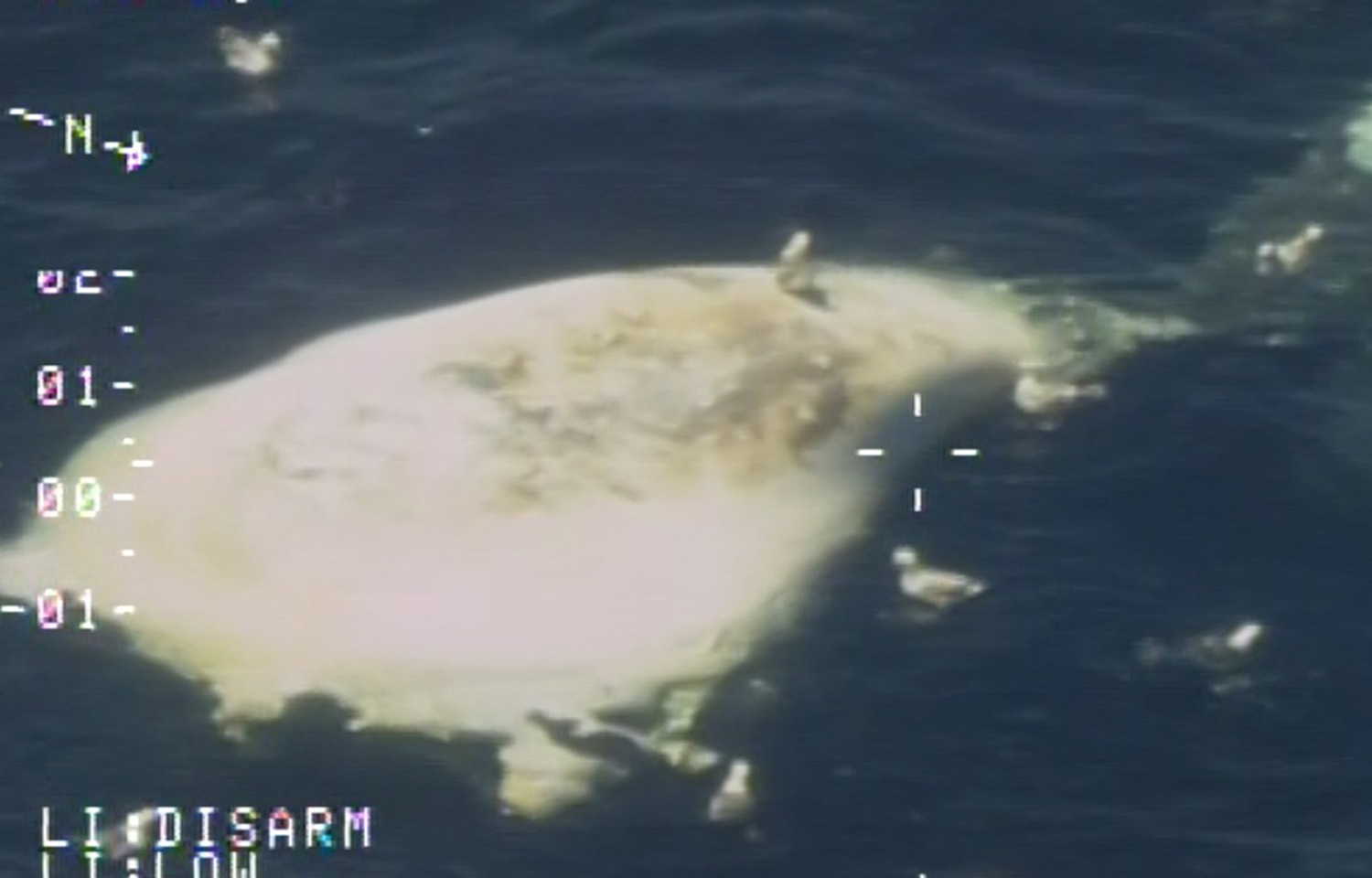Another critically endangered North Atlantic right whale has been found dead, this time off of the coast of Nova Scotia, Canada.
The Marine Animal Response Society (MARS), a Nova Scotia-based charity, announced an aerial surveillance plane from Transport Canada spotted a partial whale carcass 140 kilometers off the shore of southwestern Nova Scotia. MARS said analysis by experts in Canada and the U.S. confirmed the carcass was that of a right whale.
Due to the advanced state of decomposition and limited photos, the exact cause of death was indeterminate, MARS said.
“We were hopeful to get out to the animal to gather more information, including genetic material so colleagues could try to determine the individual,” MARS said in a Facebook post. “However, despite the much-appreciated support from a local fisher to use their vessel and financial support from Fisheries and Oceans Canada to partially fund the expedition, the animal was not able to be found again by subsequent surveillance flights.”
The latest death adds to a growing number of right whale deaths in 2024. In early January, a right whale calf suffered fatal injuries from a vessel strike off the coast of the U.S. state of South Carolina coast. Later that same month, a right whale was found dead from an entanglement in fishing gear off the coast of Massachusetts. In March, another calf was found dead off the coast of Georgia, and a female right whale was found dead in April off the coast of Virginia.
The latest death yet again renewed calls from nonprofit Oceana for more action to prevent right whaled deaths.
“The North Atlantic right whale carcasses are adding up, and possible extinction is getting closer,” Oceana Campaign Director Gib Brogan said. “The last population estimate released in 2023 said there are around 356 of these whales left on Earth, and we’ve watched many whales wash up on our shores since then. Each death is a devastating blow to their recovery.”
Brogan said the two leading causes of right whale deaths are vessel strikes and entanglement in fishing gear, making action by the governments of the U.S. and Canada necessary to prevent more deaths.
“Continued delays result in more whale deaths like this one and the potential extinction of an entire species,” Brogan said. “President Biden can and must approve the proposed updates to the U.S. vessel speed rules immediately, and stronger protections against entanglements must be enacted.”
At the same time as the dead right whale was announced, the DFO announced it was issuing more snow crab fishing closures as more North Atlantic right whales were documented in Canadian waters. The closures included the first seasonal grid closures in the Gulf of St. Lawrence, and a temporary closure in the Bay of Fundy.
"In the Gulf of St. Lawrence, a visual or acoustic detection of a right whale results in a temporary closure of those grids for 15 days. Fishing is prohibited in these areas during that time, and harvesters are required to remove their gear," the DFO said.
The seasonal closures in the Gulf of St. Lawrence apply to GY36, GY37, GZ35, GZ36, GZ37, HA35, HA36, HA37, and a portion of grid GY35.








